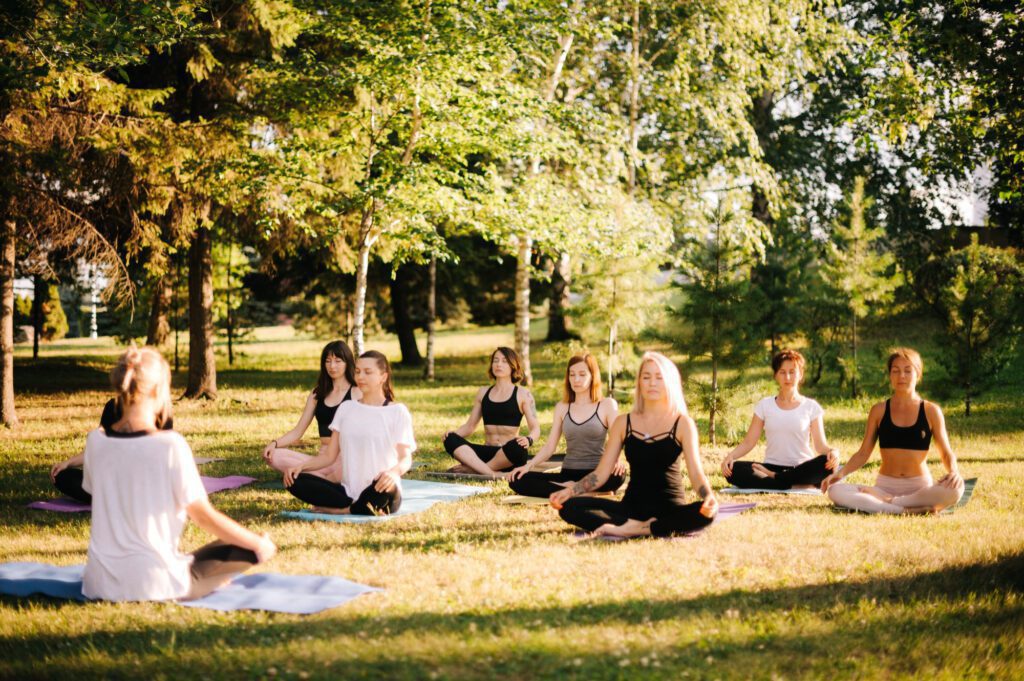Discovering Holistic Health: Your Path to Wellness

1. Introduction to Holistic Health
![]()
In today’s fast-paced and stress-filled world, the concept of holistic health has gained significant popularity as people seek a more balanced and comprehensive approach to their well-being. Holistic health is more than just a buzzword; it is a philosophy that considers the interconnectedness of all aspects of our lives and how they contribute to our overall health and happiness. This approach acknowledges that physical health, mental well-being, emotional balance, and spiritual fulfillment are all intertwined, and addressing them collectively is essential for achieving optimal wellness.
1.1 What is Holistic Health?
At its core, holistic health recognizes that we are more than just our physical bodies. It encompasses our thoughts, emotions, beliefs, relationships, lifestyle choices, and even our connection to the environment and the world around us. Holistic health practitioners understand that imbalances in one area of our lives can manifest as physical or emotional ailments. Therefore, they take a comprehensive view of an individual’s health and work towards restoring balance in all aspects.
Holistic health practices are not meant to replace conventional medicine, but rather to complement it. They emphasize prevention, self-awareness, and empowerment, encouraging individuals to take an active role in their health journey. By addressing the root causes of health issues, rather than merely treating symptoms, holistic health promotes long-term well-being and a higher quality of life.
1.2 The Essence of Holistic Wellness
The essence of holistic wellness lies in viewing ourselves as integrated beings rather than separate parts. When we recognize that our thoughts can affect our physical health and that our emotions can impact our mental well-being, we begin to see the significance of a holistic approach. Holistic wellness is about nurturing every aspect of ourselves, creating harmony and balance within and around us.
Embracing holistic wellness involves making conscious choices that support our body, mind, and spirit. It means nourishing ourselves with whole foods, engaging in regular physical activity, and adopting mindfulness practices to reduce stress and improve mental clarity. It also includes seeking support from alternative therapies and modalities to promote healing and well-being. Ultimately, holistic wellness is a lifelong journey of self-discovery and self-care that leads to a deeper understanding of ourselves and a more fulfilling life.
1.3 Understanding the Holistic Approach to Health
The holistic approach to health is guided by several key principles:
- The interconnectedness of all aspects of our lives: Holistic health recognizes that our physical, mental, emotional, and spiritual well-being are interconnected and influence each other.
- Prevention and proactive care: Rather than waiting for symptoms to manifest, holistic health emphasizes preventive measures and early intervention to maintain well-being.
- Empowerment and self-responsibility: Individuals are encouraged to take an active role in their health journey, making informed choices that support their well-being.
- Personalized care: Holistic health recognizes that each individual is unique, and there is no one-size-fits-all approach to wellness. Personalized care considers individual needs and preferences.
2. Exploring the Mind-Body Connection

2.1 The Role of Mental Health in Holistic Wellness
Mental health is a foundational pillar of holistic wellness. Our thoughts, emotions, and beliefs profoundly impact our physical health and overall well-being. Chronic stress, anxiety, and negative thought patterns can lead to imbalances in the body’s systems, contributing to various health issues. Conversely, a positive and resilient mindset can promote healing and boost our immune system.
Holistic health recognizes the significance of mental health and encourages practices that support emotional well-being. Mindfulness techniques, such as meditation and deep breathing, can help quiet the mind and reduce stress. Seeking support from therapists or counselors can also facilitate emotional healing and personal growth.
2.2 Mindfulness Techniques for a Balanced Life
Mindfulness is a powerful practice that can bring us into the present moment, allowing us to experience life more fully and reducing the tendency to dwell on past regrets or future anxieties. Mindfulness involves non-judgmental awareness of our thoughts, feelings, and sensations, cultivating a sense of inner peace and clarity.
Practicing mindfulness regularly can improve our ability to manage stress and cope with life’s challenges. Mindful eating, for example, helps us become more attuned to our body’s hunger and fullness cues, fostering a healthier relationship with food. Mindful movement practices, such as yoga or tai chi, enhance mind-body awareness and promote physical and mental flexibility.
2.3 Embracing Holistic Healing for Mental Well-Being
In the holistic approach to mental well-being, various therapeutic modalities can be beneficial. For instance, art therapy can provide a creative outlet for emotional expression and healing. Music therapy has been shown to reduce anxiety and promote relaxation. These holistic healing therapies complement conventional treatments and offer alternative ways to address emotional imbalances.
Additionally, connecting with nature and spending time in green spaces has a positive impact on mental health. Nature has a calming effect on the mind and can help reduce stress and anxiety. Taking regular nature walks or simply spending time outdoors can be rejuvenating and supportive of mental well-being.
3. Holistic Nutrition for Optimal Health

3.1 Nourishing Your Body with Natural Health Practices
Holistic nutrition focuses on nourishing the body with whole, nutrient-dense foods that provide essential vitamins, minerals, and antioxidants. By choosing natural and unprocessed foods, we support our body’s vital functions and promote overall health.
Incorporating natural health practices into our diets involves opting for fresh fruits, vegetables, whole grains, lean proteins, and healthy fats. Processed foods, which are often high in unhealthy fats, sugars, and additives, are minimized in a holistic nutrition approach.
3.2 The Power of Whole Foods and Their Benefits
Whole foods offer a plethora of health benefits. Fruits and vegetables are rich in vitamins and minerals that support immune function, aid digestion, and promote healthy skin. Whole grains provide sustained energy and are a good source of dietary fiber, crucial for digestive health. Lean proteins support muscle growth and repair and are essential for maintaining healthy tissues.
By consuming a variety of whole foods, we provide our bodies with the nutrients they need to function optimally. These foods also offer natural antioxidants that protect our cells from oxidative stress and inflammation, contributing to overall well-being.
3.3 Integrative Nutrition: A Holistic Approach to Wellness
Integrative nutrition takes a personalized approach to dietary choices, considering individual preferences, allergies, and sensitivities. It recognizes that what works for one person may not work for another, and there is no one-size-fits-all approach to nutrition.
The holistic approach to nutrition includes intuitive eating, which encourages individuals to listen to their bodies’ hunger and fullness cues. By paying attention to our body’s signals, we can make informed decisions about what and when to eat, leading to a healthier and more balanced relationship with food.
4. Physical Fitness and Holistic Living

4.1 The Link Between Exercise and Holistic Health
Regular physical activity is an integral part of holistic living. Exercise not only enhances physical fitness but also has a profound impact on mental and emotional well-being. Engaging in physical activity releases endorphins, often referred to as “feel-good” hormones, which elevate mood and reduce stress.
In the context of holistic health, exercise is viewed as an opportunity to cultivate mind-body connection and overall wellness. Whether it’s yoga, dance, hiking, or strength training, incorporating movement into our daily lives supports our body’s natural healing processes and fosters a sense of wholeness.
4.2 Holistic Workout Regimens for Overall Wellness
Holistic workout regimens aim to address all aspects of fitness, including strength, flexibility, endurance, and balance. These regimens often integrate different exercise modalities to create a well-rounded and enjoyable routine.
Yoga, for example, not only improves flexibility but also enhances mental clarity and emotional balance through breathwork and meditation. Pilates focuses on strengthening the core and improving posture, promoting a strong and stable physical foundation.
4.3 Cultivating Wholeness through Physical Activity
Physical activity, when approached holistically, is not just a means to achieve fitness goals but an opportunity to connect with our bodies and nurture our overall well-being. Instead of focusing on external outcomes, such as weight loss or muscle gain, holistic fitness encourages us to listen to our bodies and honor their unique needs.
By approaching exercise with mindfulness and self-compassion, we can cultivate a positive relationship with physical activity, making it an integral part of our holistic lifestyle.
5. Mindfulness Practices for Inner Peace

5.1 Embracing Meditation for Holistic Well-Being
Meditation is a mindfulness practice that has been embraced by cultures around the world for centuries. It involves quieting the mind and focusing on the present moment, allowing thoughts to pass without judgment. Meditation promotes a state of relaxation, reduces stress, and enhances mental clarity.
In the context of holistic health, meditation is not just about finding moments of peace and stillness; it is a transformative practice that helps us become more aware of our thoughts and emotions. Through regular meditation, we can develop a deeper understanding of ourselves, fostering emotional resilience and promoting a more positive outlook on life.
5.2 Techniques to Enhance Mind-Body-Spirit Balance
In addition to meditation, various mindfulness techniques can enhance mind-body-spirit balance. Progressive muscle relaxation helps release tension from the body, promoting physical relaxation and reducing stress. Body scans involve directing our attention to different parts of the body, encouraging us to become more aware of physical sensations.
Guided imagery is a practice that uses the power of visualization to create a sense of calm and inner peace. By incorporating these mindfulness techniques into our daily lives, we can cultivate a deeper connection with ourselves and experience greater harmony.
5.3 Nurturing Body and Mind: Self-Care and Wellness
Self-care is an essential aspect of holistic wellness, emphasizing the importance of taking time for oneself and nurturing both body and mind. Self-care practices can include anything from taking a relaxing bath or spending time in nature to engaging in creative activities that bring joy.
Practicing self-care is not indulgent; it is a vital act of self-compassion and self-love. By prioritizing self-care, we recharge our energy, reduce stress, and increase our capacity to care for others. Ultimately, self-care supports our holistic well-being and helps us maintain a sense of balance and contentment.
6. Holistic Healing Therapies and Modalities

6.1 Exploring Alternative Medicine for Wellness
Alternative medicine offers a wide range of healing therapies and modalities that complement traditional medical treatments. Acupuncture, for example, is an ancient Chinese practice that involves inserting thin needles into specific points on the body to stimulate energy flow and promote healing.
Herbal medicine, another form of alternative medicine, uses plant-based remedies to support the body’s natural healing processes. These holistic healing therapies have gained recognition for their effectiveness in alleviating various health conditions and supporting overall well-being.
6.2 The Benefits of Holistic Health Practices
Holistic health practices offer a myriad of benefits beyond physical healing. Many individuals report reduced stress, improved sleep quality, increased energy levels, and a greater sense of overall contentment.
Holistic therapies not only address the symptoms of health issues but also work to identify and treat the underlying imbalances in the body. By restoring harmony and balance, these practices support the body’s natural ability to heal itself and promote long-term well-being.
6.3 Integrative Wellness Approaches for Holistic Healing
Integrative wellness takes a collaborative approach to health and well-being, combining the best of conventional and alternative medicine. It recognizes that both approaches have unique strengths and can work together to provide comprehensive care.
Integrative wellness practitioners consider individual needs and preferences when creating treatment plans, ensuring that the approach aligns with the person’s beliefs and lifestyle. By integrating various healing modalities, integrative wellness offers a holistic and personalized path to healing and wellness.
7. Creating a Holistic Lifestyle

7.1 How to Incorporate Holistic Living in Daily Life
Incorporating holistic living into daily life starts with simple but intentional changes. One way is to focus on mindful eating by savoring each bite and paying attention to hunger and fullness cues. Another is to integrate movement into our daily routines, whether it’s taking short walks during breaks or practicing yoga before bedtime.
Meditation can be incorporated into our mornings or evenings as a way to set the tone for the day or wind down before sleep. Additionally, surrounding ourselves with nature, whether it’s through indoor plants or spending time outdoors, can promote a sense of calm and well-being.
7.2 Holistic Health Benefits for Long-Term Wellness
The benefits of embracing a holistic lifestyle extend far beyond immediate results. By prioritizing our well-being in all dimensions – physical, mental, emotional, and spiritual – we set the foundation for long-term health and vitality.
Holistic health practices promote resilience, allowing us to adapt better to life’s challenges. By taking a proactive approach to our well-being, we can prevent certain health issues and minimize the impact of others. Overall, a holistic lifestyle fosters a sense of empowerment and ownership over our health and happiness.
7.3 Wellness Transformation: The Holistic Mindset
The transformation towards a holistic mindset involves a shift in perspective and approach to life. It is about embracing the idea that we are more than just the sum of our parts, and true well-being is achieved when all aspects of ourselves are nurtured and in balance.
The holistic mindset encourages self-compassion and self-awareness, recognizing that it is okay to prioritize self-care and make choices that align with our well-being. It also involves cultivating a deeper connection with ourselves and our bodies, listening to our inner wisdom, and trusting our intuition.
Adopting a holistic mindset means taking a proactive approach to health and wellness, seeking preventive measures, and making conscious choices that support our overall well-being. It is a journey of self-discovery and growth, and as we evolve, we empower ourselves to lead fulfilling and meaningful lives.
8. Holistic Health Guide for Beginners

8.1 Step-by-Step Journey to Discovering Holistic Health
Embarking on a holistic health journey begins with self-reflection and a desire to lead a more balanced and fulfilling life. Start by setting aside time to assess the various areas of your life – physical, mental, emotional, and spiritual. Identify any imbalances or areas where you feel disconnected.
Next, create a plan to incorporate holistic practices into your daily routine. This could include starting a mindfulness meditation practice, trying out a new exercise regimen, or exploring alternative therapies that resonate with you.
Remember that the journey to holistic health is a process, and it’s okay to take small steps. Be patient and gentle with yourself as you navigate this new path, and celebrate the progress you make along the way.
8.2 Embracing the Path to Wellness: Tips and Recommendations
As you embrace the path to holistic wellness, consider the following tips and recommendations:
- Start with simple changes: Begin by incorporating one or two holistic practices into your daily life. As you become comfortable with these changes, gradually add more practices to your routine.
- Find what works for you: Not all holistic practices will resonate with everyone. Explore different modalities and find what feels right for you. Whether it’s yoga, meditation, or herbal remedies, choose practices that align with your needs and preferences.
- Seek support and guidance: If you feel overwhelmed or unsure where to start, consider seeking guidance from a holistic health practitioner. They can provide personalized recommendations and support your well-being journey.
8.3 Holistic Wellness Tips for a Balanced Life
Here are some holistic wellness tips to help you achieve a more balanced and fulfilling life:
- Prioritize self-care: Make time for self-care activities that nourish your body, mind, and spirit. This could include spending time in nature, practicing yoga, or engaging in creative pursuits.
- Practice mindful eating: Pay attention to what you eat and how it makes you feel. Choose nutrient-dense whole foods and savor each bite mindfully.
- Cultivate a positive mindset: Practice gratitude and focus on positive aspects of your life. Surround yourself with positive influences and let go of negativity.
- Stay active: Engage in regular physical activity that you enjoy. It could be dancing, hiking, or any form of exercise that brings you joy.
- Connect with others: Cultivate meaningful relationships and spend time with loved ones. Social connections contribute to overall well-being.
9. Holistic Health and Wellness: A Comprehensive Overview

9.1 Unveiling the Essence of Holistic Health and Wellness
Holistic health and wellness go beyond treating symptoms; they encompass a deeper understanding of the interconnectedness of all aspects of our lives. When we embrace this perspective, we empower ourselves to take charge of our health and well-being on multiple levels.
Holistic wellness is not a one-time achievement; it is a dynamic and ongoing process of self-awareness, self-care, and growth. By nurturing our physical, mental, emotional, and spiritual aspects, we create a strong foundation for a fulfilling and balanced life.
9.2 The Holistic Approach to Health: Key Concepts and Principles
The holistic approach to health is rooted in several key concepts and principles:
- Whole-person care: Holistic health acknowledges that every individual is unique and requires personalized care that considers their physical, mental, emotional, and spiritual needs.
- Prevention and proactive measures: Rather than waiting for health issues to arise, the holistic approach focuses on preventive measures and proactive self-care to maintain well-being.
- Integrative approach: Holistic health integrates various healing modalities and therapies to create a comprehensive and well-rounded approach to wellness.
9.3 Holistic Wellness in a Modern World: Challenges and Solutions
In today’s fast-paced and technologically driven world, there are challenges to maintaining a holistic lifestyle. The constant exposure to screens, the sedentary nature of many jobs, and the prevalence of processed foods can hinder our well-being.
However, there are solutions to navigate these challenges. Mindful technology use, regular breaks from screens, and engaging in physical activity are ways to promote holistic wellness in a modern context. Creating a supportive environment and fostering a sense of community can also be beneficial in cultivating a holistic lifestyle.
10. Conclusion: Embracing Holistic Well-Being

10.1 The Impact of Discovering Holistic Health
Discovering the path to holistic health can have a profound impact on every aspect of our lives. By nurturing our body, mind, and spirit, we experience a greater sense of balance, fulfillment, and resilience.
Holistic wellness is not a destination but an ongoing journey of self-discovery and growth. It is about creating harmony within ourselves and with the world around us.
10.2 Path to Wellness: A Journey of Wholeness and Health
The path to wellness is a journey of self-exploration and transformation. It involves embracing all aspects of ourselves, including the ones we may have neglected or overlooked.
As we embark on this path, we learn to listen to our bodies, honor our emotions, and cultivate a positive mindset. We embrace self-care as a vital part of our routine and make conscious choices that support our well-being.
10.3 Empowering Lives with Holistic Mindset and Wellness
The holistic mindset empowers us to take charge of our health and well-being. It reminds us that we have the power to create positive changes in our lives and supports us in becoming the best versions of ourselves.
Embracing a holistic lifestyle not only benefits us individually but also ripples out to positively impact our relationships, communities, and the world. When we prioritize our well-being and align with our true selves, we radiate that positive energy to others, creating a ripple effect of wellness and transformation.
11. FAQs (Frequently Asked Questions)
1. What is Holistic Health?
Holistic health is an approach to well-being that considers the interconnectedness of all aspects of our lives, including physical, mental, emotional, and spiritual health. It emphasizes prevention, self-awareness, and proactive self-care to achieve optimal wellness.
2. How can I start incorporating holistic practices into my daily life?
Begin by identifying areas of your life that may need more balance or attention. Start with simple changes, such as practicing mindfulness meditation or choosing nutrient-dense whole foods. Gradually add more holistic practices that resonate with you.
3. Are holistic therapies a replacement for conventional medicine?
Holistic therapies are not meant to replace conventional medicine but rather complement it. They offer a holistic approach to health and wellness, addressing the root causes of health issues and supporting the body’s natural healing processes. It is essential to work with healthcare professionals and discuss any holistic therapies you wish to incorporate into your treatment plan.
4. What are some benefits of embracing a holistic lifestyle?
Embracing a holistic lifestyle offers numerous benefits, including improved overall well-being, reduced stress, increased energy levels, enhanced mental clarity, and a greater sense of balance and contentment. It also empowers individuals to take charge of their health and make conscious choices that support their well-being.
5. How does the holistic mindset impact personal growth?
The holistic mindset fosters self-awareness, self-compassion, and a deeper connection with oneself. By embracing all aspects of our being and considering the interconnectedness of our lives, we gain insights into our strengths, values, and areas of growth. This self-discovery and growth journey lead to personal empowerment and a greater sense of fulfillment in life.






Worried about prostate health? Learn how Prostadine, a natural supplement, might help you reclaim your comfort and confidence. Explore the science behind the ingredients, potential benefits, and considerations before taking Prostadine.